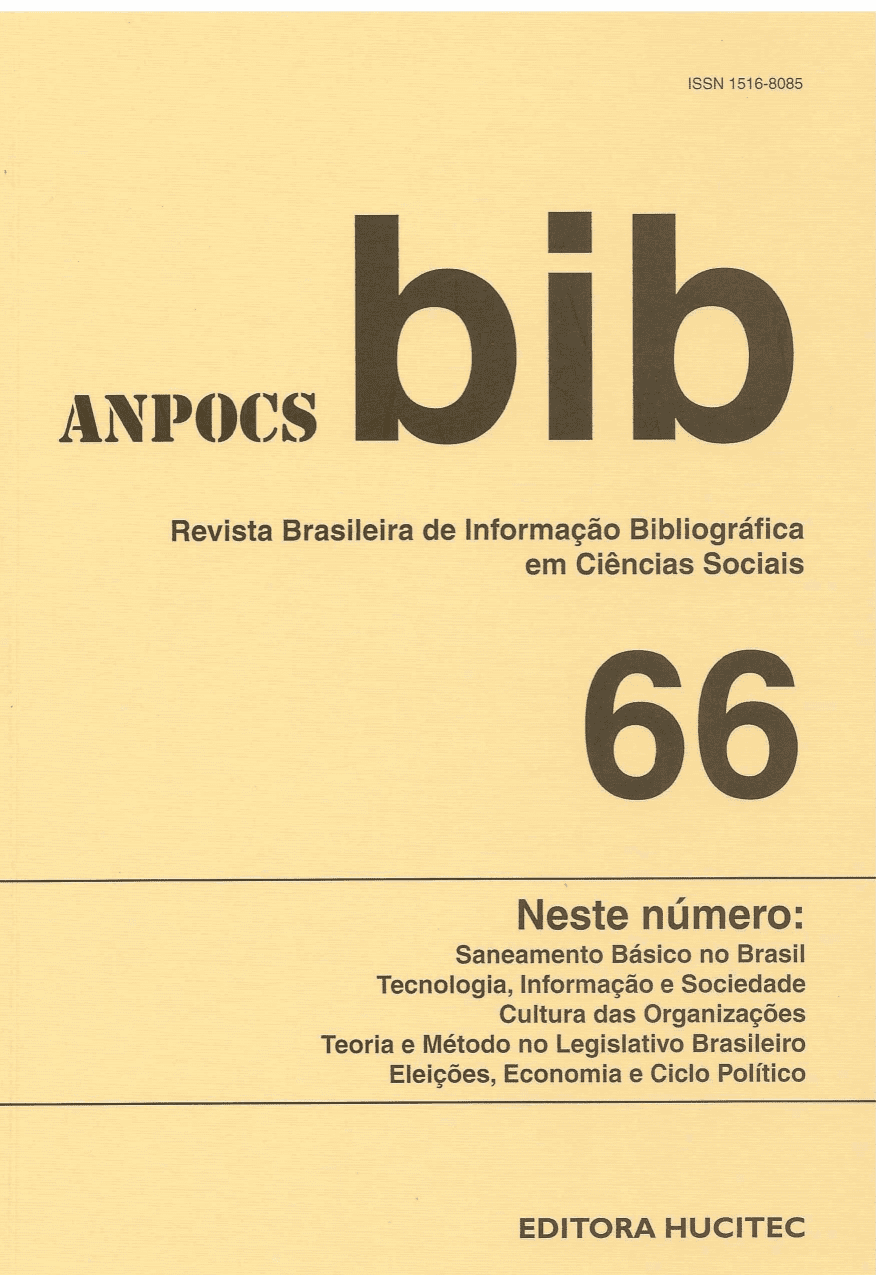Culture des Organisations
points de vue dominants, tendances internationales et nouvelles propositions analytiques
Mots-clés :
Culture organisationnelle, Symbolisme organisationnel, Sociologie des organisations, GestionRésumé
La culture et le symbolisme organisationnel représentent, de nos jours, un domaine d’études solide, marqué par de multiples contributions disciplinaires et par divers agendas théoriques. En analysant la diversité des études produites au cours des dernières décennies sur le plan international, nous avons identifié deux mouvements théoriques distincts et concourants dans l’abordage de la culture organisationnelle : le mouvement intégrateur en tant que référentiel hégémonique et, en contrepartie, le mouvement critique. Si, d’un côté, les perspectives de la nature plutôt gestionnaire et intégrative défendent que les cultures intégratives sont favorables à la construction de l’excellence et à la compétitivité organisationnelle, d’un autre, les perspectives critiques et réflexives investissent dans l’étude de processus de construction et de manifestation culturelle, relativisant leur usage en tant que technique à service de la productivité. L’objectif central de cet article est présenter un modèle théorique et empirique pour l’analyse des dimensions culturelles et symboliques des organisations qui permette d’appréhender les processus actuels de changement en cours dans les organisations de travail.
Téléchargements
Références
ALLAIRE, Yvan; FIRSIROTU, Mihaela E. (1984), “Theories of organizational culture”. Organizations Studies, V (3): 193-226.
ALVESSON, M ats (2002), Under standing organizational culture. London, Sage Publications.
BATES, Richard J. (1987), “Corporate culture, schooling, and educational adm inistration”. Educational Administration Quarterly, 2 3 ,4 :7 9 -1 1 5 .
BERGER, Peter; LUCKMANN, Thomas. (1990), A construção social da realidade. Petrópolis, Vozes.
BUSH, Tony (1986), Theories o f educational management. London, H arper & Row, Publishers.
DEAL, Terence; KENNEDY, Allan A. (1988 [1982]), Corporate cultures. T he rites and rituals of corporate life. London, Penguin Books.
FELDMAN, M artha S. (1991), “The meaning o f ambiguity: learning from stories and metaphors”, in Peter J. Frost etal. (eds.), Reframing organizational culture, London, Sage Publications, pp. 145-56.
FROST, Peter J. etal. (eds.) (1991), Reframing organizational culture. London, Sage Publications.
KILLMANN, Ralph H . etal. (1985), Gaining control o f the corporate culture. London, Jossey-Bass Publishers.
GREGORY, Kathleen, L. (1983), “Native-view paradigms: multiple cultures and cultures conflicts in organizations”. Administrative Science Quarterly, 28: 359-76.
LIMA, Licínio C. (1992), A escola como organização e a participação na organização escolar. Um estudo da escola secundária em Portugal (1974-1988). Braga, Universidade do M inho.
LOUIS, Meryl R. (1985), “An investigator’s guide to workplace culture”, in Peter J. Frost et al. (eds.), Organizational culture, London, Sage Publications, pp. 73-93-
MARTIN, Joanne (1992), Cultures in organizations. Three perspectives. New York, Oxford, Oxford University Press, London, Sage Publications.
_____ • (2002), Organizational culture. Mapping the terrain. London, Sage Publications.
MARTIN, Joanne; MEYERSON, Debra (1988), “Organizational culture and the denial, channeling and acknowledgement o f ambiguity”, in L. R. Pondy; R. J. Boland Jr.; H . Thom as (eds.), Managing ambiguity and change, New York, John Wiley, pp. 93-125.
MARTIN, Joanne et al. (1983), “The uniqueness paradox in organizational stories”, in Administrative Science Quarterly, 28:438-53.
_____ • (1985), “Founders and the elusiveness o f a cultural legacy”, in Peter J. Frost et al. (eds.), Organizational culture, London, Sage Publications, pp. 99-124.
MEYERSON, Debra (1991), “‘Normal’ ambiguity? A glimpse o f an occupational culture”, in Peter J. Frost etal. (eds.), Reframing organizational culture, London, Sage Publications, pp. 131-44.
MEYERSON, Debra; MARTIN, Joanne (1987), “Cultural change: an integration ofthree different views”. Journal o f Management Studies, 24: 623-47.
O U C H I, William G. (1986), TeoriaZ. Como as empresaspodem enfrentar o desafio japonês. São Paulo, Nobel.
PETERS, Thomas J.; WATERMAN, Robert H . (1987), Na senda da excelência. Lisboa, Publicações Dom Quixote.
PETTIGREW , A. (1979), “O n studying organizational culture”. Administrative Science Quarterly, 24: 570-81.
ROSEN, Michael (1991), “Breakfast at Spiro’s: dramaturgy and dominance”, in Peter J. Frost etal. (eds.), Refaming organizational culture, London, Sage Publications, pp. 77-89.
SAINSAULIEU, Renaud (1987), Sociologie de l ’organizacion et de I’entreprise. Paris, Presses de la Fondation Nationale des Sciences Politiques et Dalloz.
SCHEIN, Edgar H . (1985), Organizational culture and leadership. São Francisco, Jossey-Bass Publishers.
_____ • (1991), “T he role o f the founder in the creation o f organizational culture”, in Peter J. Frost etal. (eds.), Reframing organizational culture, London, Sage Publications, pp. 14-25.
SM IR CICH, Linda. (1983a), “Concepts o f culture and organizational analysis”. Administrative Science Quarterly, 28: 339-58.
_____ • (1983b), “Studying organizations as cultures”, in Gareth M organ (ed.), Beyond method: social research strategies, Beverly Hills, CA, Sage Publications, pp. 160-72.
SPARKES, Andrew C.; BLO O M ER, M artin (1993), “Teaching cultures and school-based management: towards a collaborative reconstruction”, in John Smyth (ed.), A socially critical view o f the self management school, London, The Palmer Press, pp. 171-89.
TORRES, Leonor L. (1997), Cultura organizacional escolar: Representações das professores numa escola portuguesa. Oeiras, Celta Editora.
_____ . (2001), “A cultura organizacional na (re)conceptualização da formação em contextos organizacionais”. Cadernos de Ciências Sociais, 21-22:119-50.
_____ . (2004), Cultura organizacional em contexto educativo. Sedimentos culturais e processos de construção do simbólico numa escola secundária. Braga, CIED/Universidade do Minho.
VANMAANEN, John (1991), “T he smile factory: work at Disneyland”, in Peter J. Frost et al. (eds.), Refaming organizational culture, London, Sage Publications, pp. 58-76.
WEICK, Karl (1991), “T he vulnerable system: an analysis o f the tenerife air disaster”, in Peter J. Frost etal. (eds.), Reframing organizational culture, London, Sage Publications, pp. 117-30.





